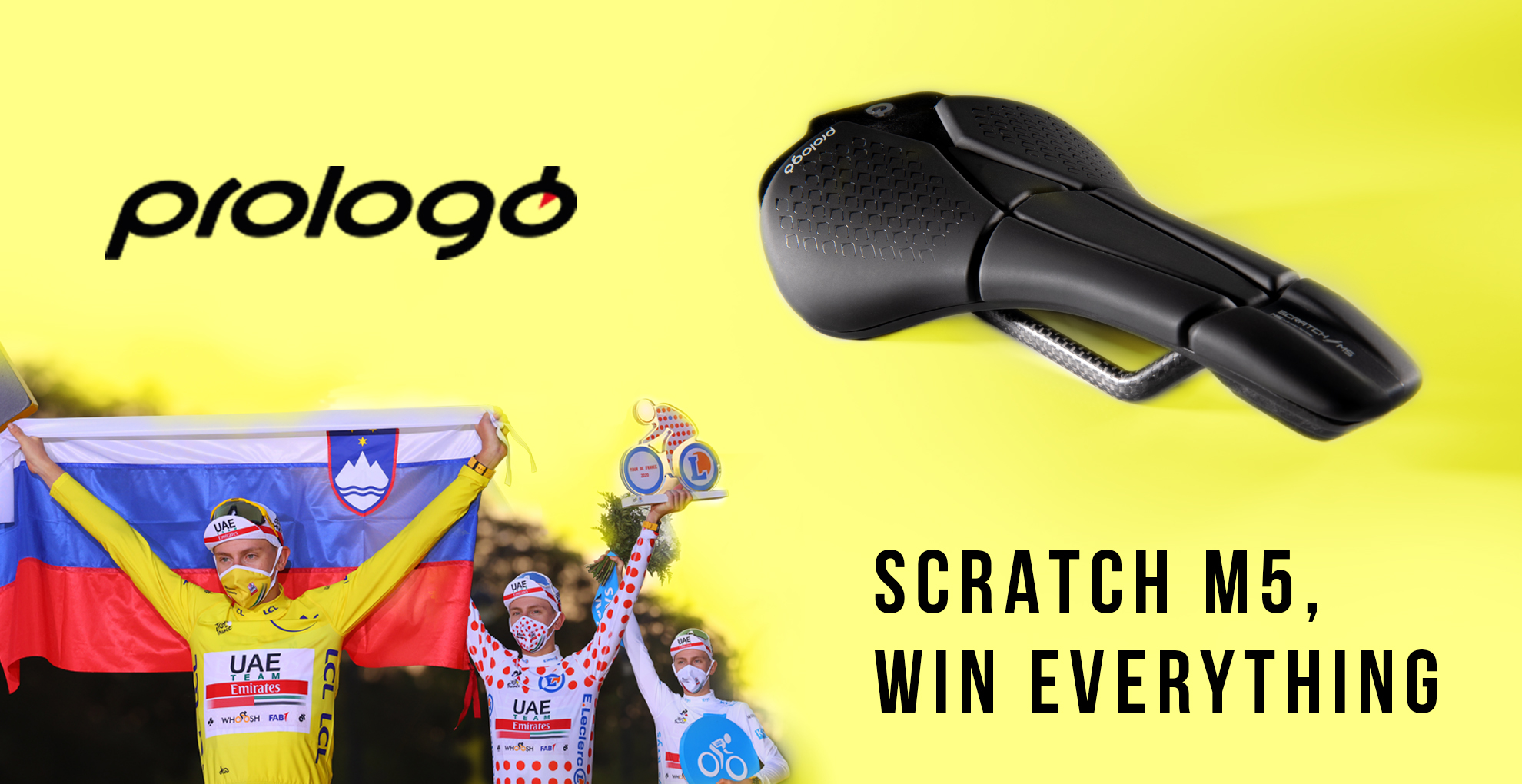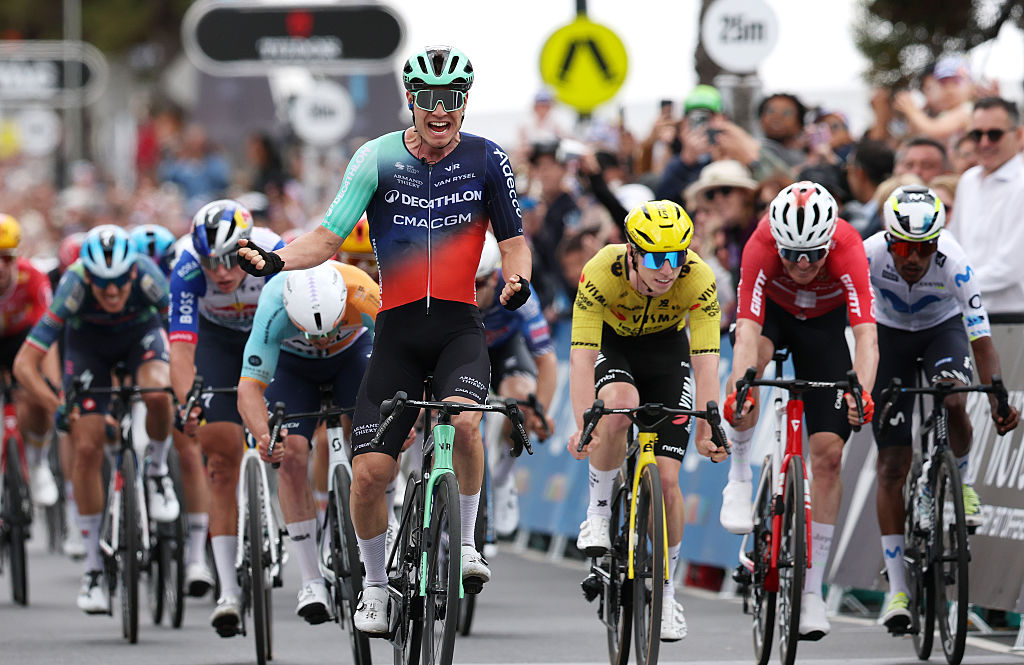How Prologo supported Pogačar to his Tour de France win
Tadej Pogačar's Tour de France win was immense. The Prologo Scratch M5 saddle helped him get there.

There is no cycling event to rival the greatest of all Grand Tours. For three weeks the world’s best cyclists roam more than 2000 miles across France, having to conquer all its most challenging topography.
Climbing the Alps and Pyrenees. Speeding along the open plains between those legendary mountains. Along every mile of the Tour de France, saddle comfort is crucial. For all the trick aero frames and components, explosive leg power and huge lung endurance, if a rider is uncomfortable on the bike, their performance will wither.
This year’s Tour de France winner was youthful Slovenian, Tadej Pogačar, who sat to victory atop a Prologo’s Scratch M5. The Italian cycling component brand has a unique approach to saddle design and Pogačar win has validated the Prologo product team’s insights about industrial design and physiological ergonomics.
In appearance the Scratch M5’s compact size and segmented padding are immediately noticeable. Prologo’s product development specialists desired to create a saddle with excellent comfort and broad rider compatibility, for riders of all sizes and genders.
Assisting in the development of this Tour de France winning saddle, was the largest technical university in Italy. Prologo’s product team collaborated with the Politecnico di Milano to create an MSS (multisector system) padding structure for its Scratch M5.
With its five clearly defined segments the Scratch M5 saddle can respond better to rider movement and provide superior support, compared to a conventional single pad configuration. Using different foam densities for each padding sector, Prologo’s industrial designers and ergonomists were able to optimise how the saddle reacts to a rider’s dynamic leg and hip movements.
Nothing illustrates the value of Prologo’s MSS feature better, than Pogačar’s performance at the 2020 Tour de France. In both the pulling and pushing phase of your pedal stroke, the active padded segments that comprise a Scratch M5’s seating surface, deliver dynamic support and reduces fatigue.
Tadej Pogačar Tour de France win might be all about the fastest overall time, but the timing sheets do not account for seating fatigue – which can be silently debilitating for racers and amateur riders. Much of the M5’s comfort is delivered by its vibration damping, courtesy of a monocoque carbon-fibre rail and saddle base structure. Using the superior acoustic absorption of carbon-fibre, industrial designers at Prologo ensure that the Scratch M5 contact points with your seatpost, can adequately dull road buzz over coarse surfaces and long distances.
Further supplementing Pogačar’s endurance during the Tour was Prologo’s shaping of his Scratch M5 saddle’s rear section, which is rounded. This allows for a generous base to distribute pressure and facilitate natural rotational of the pelvis when pedalling.
Although most contemporary road racing saddles have a perineal channel, the Scratch M5 offers both options, allowing you to choose which relief profile works best. For those riders who want a bit more support, there is an open base design to relieve pressure peaks in the pelvic area, without exposing a rider to extreme wind chill in cold conditions.
Beyond the scratch M5’s proven ergonomics and comfort, it remains much a high-performance saddle in specification, registering a notably light weight of only 155g.
Tadej Pogačar’s Tour de France might have been a great victory for the young professional road cycling star, but all riders have access to his cycling technology. Prologo has always subscribed to a design and product philosophy that prioritized pro peloton performance, made accessible for all.
And that concerns gender too, with the Prologo Scratch M5 saddle range designed to offer a single solution for male and female riders.
The latest race content, interviews, features, reviews and expert buying guides, direct to your inbox!
Lance Branquinho is a Namibian born media professional, with 15-years of experience in technology and engineering journalism covering anything with wheels. Being from Namibia, he knows a good gravel road when he sees one, and he has raced some of Africa’s best-known mountain bike stage races, such as Wines2Wales and Berg&Bush.
